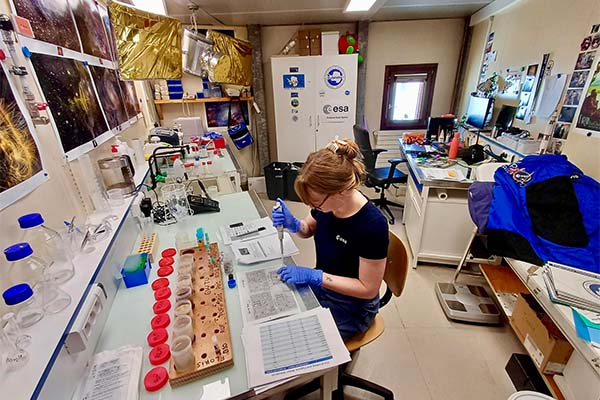 Testing the grey water treatment unit – the same unit is used on the International Space Station (Photo credit: PURVIS/DC21/ESA/IPEV/PNRA)
Testing the grey water treatment unit – the same unit is used on the International Space Station (Photo credit: PURVIS/DC21/ESA/IPEV/PNRA)
What’s the key skill you learnt at King’s?
I learnt to adapt. Plans change and things don’t always go as expected, but that’s okay. During my masters, I learnt about my study habits and how to manage the workload. I also learnt a lot about the human body and how it performs in extreme environments. Humans are truly resilient, but we have some way to go in terms of sending astronauts safely to Mars.
This knowledge is also highly transferable in the NHS. For example, it's relevant to Intensive Therapy Units patients or those on prolonged bed rest, who experience muscle and bone loss like astronauts in microgravity.
How did King’s prepare you for your mission in Antarctica?
My time at King’s coincided with the beginning of the COVID pandemic, closely mirroring my current experience of isolation and confinement in Antarctica.
At King’s, I was studying spaceflight isolation, confinement in spaceflight and analogs – Earth-based research or training sites such as Antarctic bases that simulate extreme space environments. At the same time, I was experiencing similar conditions first-hand during the COVID lockdown. The combination made for an intense and deeply immersive experience.
I still use coping mechanisms from that time – staying connected, managing loneliness and a demanding workload – to navigate life in extreme environments.